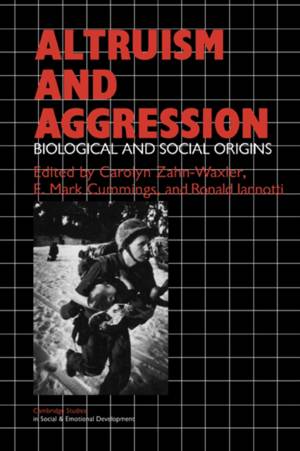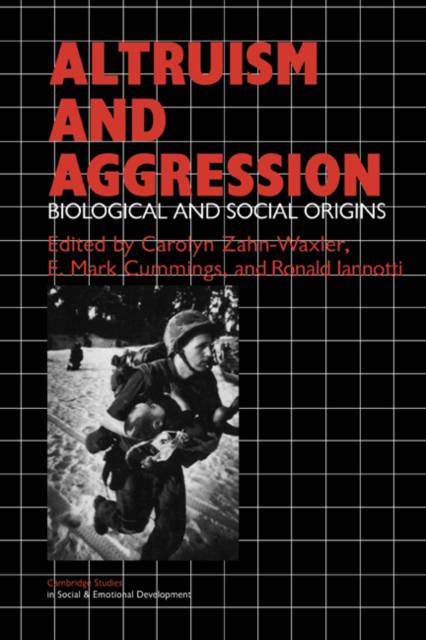
- Afhalen na 1 uur in een winkel met voorraad
- Gratis thuislevering in België vanaf € 30
- Ruim aanbod met 7 miljoen producten
- Afhalen na 1 uur in een winkel met voorraad
- Gratis thuislevering in België vanaf € 30
- Ruim aanbod met 7 miljoen producten
Zoeken
Altruism and Aggression
Social and Biological Origins
€ 67,95
+ 135 punten
Omschrijving
In this timely collection, biological and behavioral scientists address questions emerging from new research about the origins and interconnections of altruism and aggression within and across species. They explore the genetic underpinnings of affiliative and aggressive orientations as well as the biological correlates of these behaviors. They consider environmental variables--family patterns, childrearing practices--that influence prosocial and antisocial behaviors. And they examine internal processes such as empathy, socio-inferential abilities, and cognitive attributions, that regulate "kindness" and "selfishness." The first section focuses on biological, sociobiological, and ethological approaches. It explores the utility of animal models for understanding both human and infrahuman social behavior. The second section focuses on the development, socialization, and mediation of altruism and aggression in children. Several concerns underly both sections. These include the role of attachment processes, separation distress, reciprocal interchanges, and social play in determining the quantity and quality of aggressive and affiliative interactions; the function of emotions (e.g. empathy, guilt, and anger) as instigators of altruism and aggression; and the nature of sex differences. Several chapters present data on emotions that mediate altruism and aggression and also on patterns of association between prosocial and antisocial behaviors. The authors take an ethological perspective, placing special importance on the need to explore altruism and aggression in the real lives and natural habitats of humans and other animals.
Specificaties
Betrokkenen
- Uitgeverij:
Inhoud
- Aantal bladzijden:
- 352
- Taal:
- Engels
- Reeks:
Eigenschappen
- Productcode (EAN):
- 9780521423670
- Verschijningsdatum:
- 26/07/1991
- Uitvoering:
- Paperback
- Formaat:
- Trade paperback (VS)
- Afmetingen:
- 152 mm x 228 mm
- Gewicht:
- 476 g

Alleen bij Standaard Boekhandel
+ 135 punten op je klantenkaart van Standaard Boekhandel
Beoordelingen
We publiceren alleen reviews die voldoen aan de voorwaarden voor reviews. Bekijk onze voorwaarden voor reviews.










